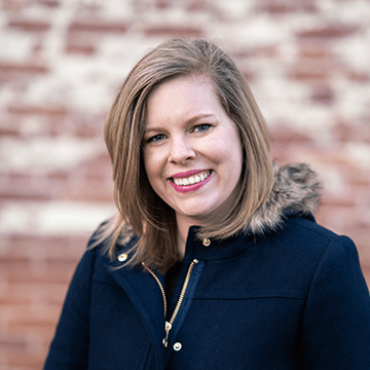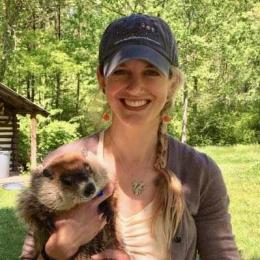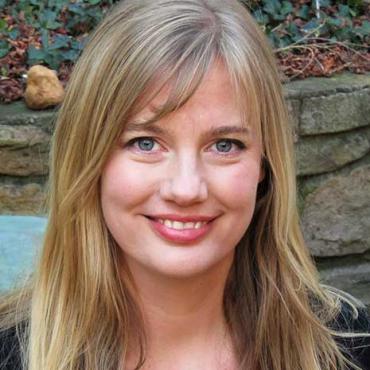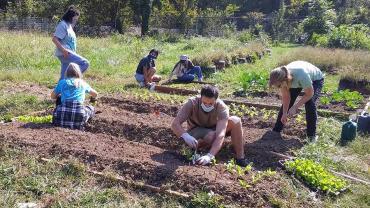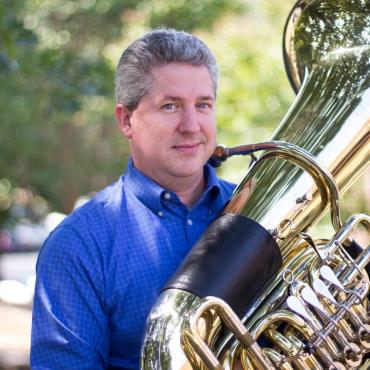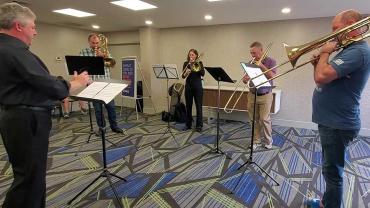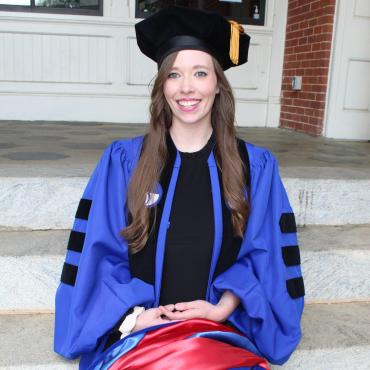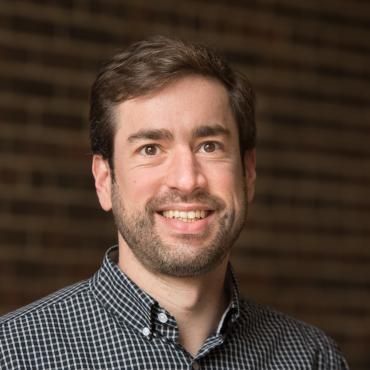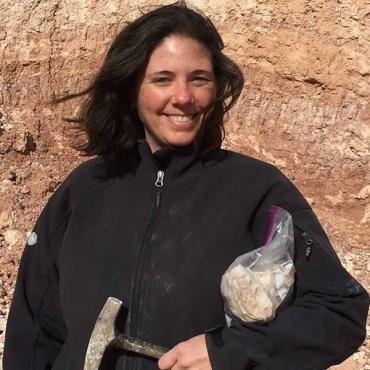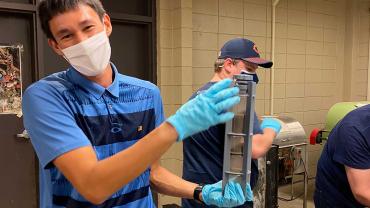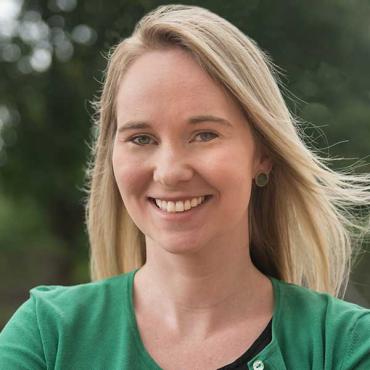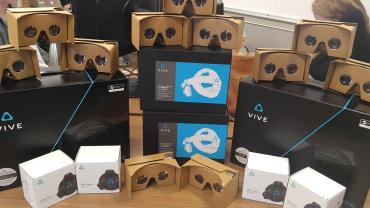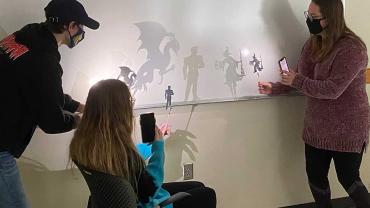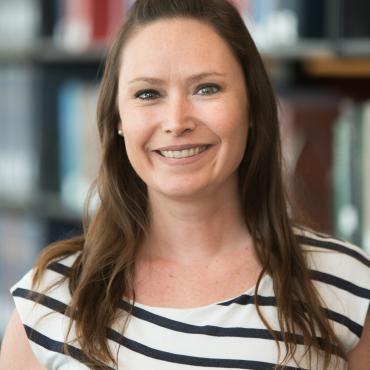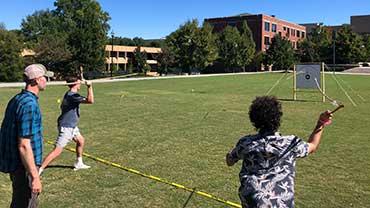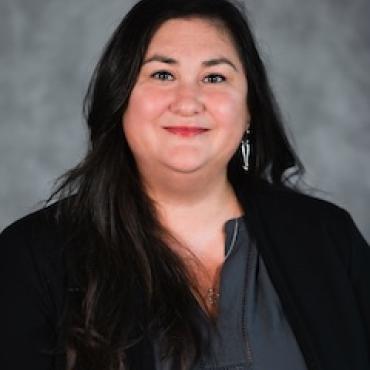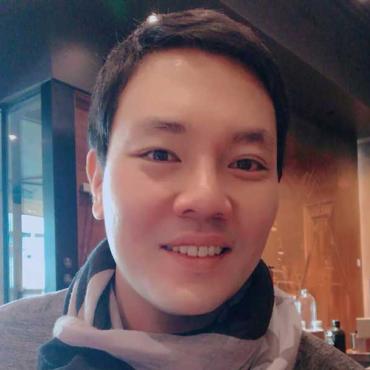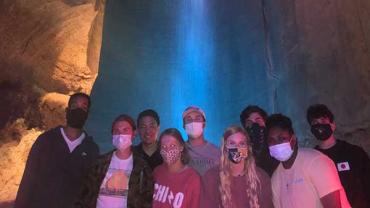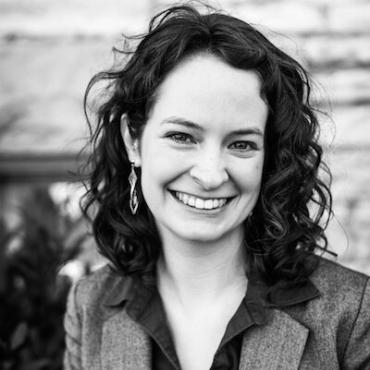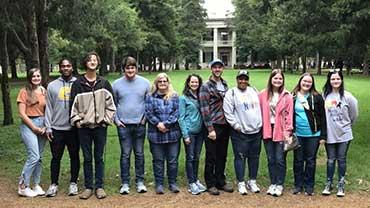Grant Recipients
WCTL Teaching Innovation Grants can be used for a variety of purposes including the categories listed below. However, please note that these categories are not exclusive, and the grants can be used for other functions as well! Click on a category to see some grants in action.
Community Partners
Dr. Megan Hartline | English
Examining Community Writing as a Field of Study and as a Practice in Chattanooga | High Impact Practices (HIP) Grant: $1,000
Students in this class engage in short-term projects with local community organizations, including City Farms Growers Coalition and TN United. Students learn more about the work these organizations do in the city and create written and digital materials that will enable the organizations to meet their goals. To create these materials, students spend several hours on site with local organizers and community members, learning about the organizations and their work in Chattanooga. In addition to the community component, students met and learned from other community-engaged scholars in the field of community writing, including Dr. Steven Alvarez who has been conducting community-engaged literacy work in New York City and Lexington, KY for over a decade.
Dr. Katherine Kinnear | Biology, Geology and Environmental Science
Ecosystem Disturbance and Utilization of Supplemental Habitat | HIP Grant: $1,936
Habitat loss is well established as a leading cause of declines in many species of wildlife. Katherine Kinnear developed a plan to reduce the negative outcomes associated with displaced wildlife in the Lundy Mountain neighborhood on Signal Mountain due to ongoing construction developments. Students have assembled and installed nest boxes in a nearby area to help the displaced animals, specifically, the Eastern Grey Squirrel. Students have utilized and developed their research and critical thinking skills to consider modifications or improvements to the design, and if there were sources of error that would affect the data.
Dr. Lucy Schultz | Philosophy
Revitalizing Hope for the Inner City's 'Grow Hope Urban Farm' | Matching Grant: $500
Dr. Schultz will be continuing the partnerships formed with Hope for the Inner City and City Farms Grower Coalition to maintain and expand the Grow Hope Urban Farm. In order to continue our work on the farm, additional plants, soil, compost, and gloves need to be purchased along with an honorarium.
Dr. Kenyon Wilson | Music
Trombone Quartet Composition Session | Mini-Grant: $300
The major project for students enrolled in MUS 3050 is to compose a new work for trombone quartet. This grant allowed two collaboration sessions with the Augusta Trombone Quartet, including a preliminary reading of the works in October and a final recording in December. The opportunity for students to have recordings and feedback from a professional quartet is invaluable.
Dr. Katelyn Hancock | Social, Cultural, and Justice Studies
Pouring for Purpose | Mini-Grant ($300)
This grant funded supplies for Dr. Katelyn Hancock's Ethics in Criminal Justice class to complete a pour painting activity related to ethical dilemmas. Student-created paintings were displayed in the University Center and donations were received in exchange for the paintings. All proceeds benefited Victim Support Services of local nonprofit Partnership for Families, Children and Adults.
Real-World Experiments
Dr. Fernando Alda-Pons | Biology, Geology, and Environmental Science
Introduction to bioinformatic analysis using cloud-based computational tools | $300 Mini-Grant
Molecular Ecology and Evolution integrates ecology, genetics, and evolution by emphasizing the application of molecular genetic concepts in the areas of conservation, phylogeography, and phylogenetics. The course uses computer exercises for case studies, for carrying out analyses of real data sets, and for completing lab assignments and research projects. This grant funded the R computer language in the RStudio Cloud platform to accomplish a double goal of introducing students to bioinformatics and computer coding.
Dr. Amy Brock-Hon | Biology, Geology and Environmental Science
Mineralogical Analyses for Southside Chattanooga Lead Project Classroom | Mini-Grant: $300
Students worked with the Tennessee Department of Environment and Conservation (TDEC) and the Environmental Protection Agency (EPA) to obtain samples from yards in the community which were built upon foundry sands with lead. They characterized the waste material by observing lead reactions and used their mineral ID skills to determine which minerals were present and what other materials and minerals were associated with lead.
Dr. Tonya Miller | Interior Architecture and Design
Examining Community Writing as a Field of Study and as a Practice in Chattanooga | Mini-Grant: $296
This grant was used to purchase and install vinyl graphics to visually illustrate human factors impacting interior space planning. These graphics illustrated anthropometric dimensions and required ADA clearances. This helped students visualize the standards taught in class and better understand how these concepts apply to real world scenarios. It also aided in demonstrating the reason for certain building codes and civil rights legislation. Experiencing the full scale application of these minimum requirements (such as practicing how difficult it is to turn a wheelchair in a 5' diameter space) promotes empathy for diverse user groups and brings to life the dimensions students usually see on paper.
Simulation-Based Learning
Gaye Jeffers | Theater
Theatre History: Hands On History | Mini-Grant: $293.58
Theatre History: Hands On History is a series of in-class activities requiring students to incorporate the practices and tools of theatre artists and events from Asian theatre, Balinese shadow puppeteers, medieval morality plays, and Renaissance writing. Grant funds were used to purchase paper eye masks, shadow puppets, Tabi socks, feather quill and ink, and linen paper. Students created a movement piece utilizing Kabuku and/or Noh theatre practices; created a shadow puppet play utilizing techniques from Bali combined with the themes of a medieval morality play; and wrote a sonnet with a feather quill that was shared with the class. Students held, wore, felt, moved, and reflected on the physical as well as the theoretical.
Dr. Carey McCormack | History
Paleo Skills Workshop | Matching Grant: $500
The grant money was used to repair damaged materials from the first event and to add more materials for the increased student attendance. This paleo skills workshop was interdisciplinary and included 4 classes of archeology and anthropology, so the student attendance was doubled what it was in Spring 2019. The event was co-hosted by History and SCJS. In addition, the funds from this grant paid for training of history and archeology students to create darts and atlatls, making this event sustainable in the future.
Dr. A. Brooke Persons | Anthropology
Understanding Global Trends in Human History: Paleoskills Workshop | Mini-Grant: $300
This grant funded a 2-hour Paleoskills Workshop highlighting indigenous technologies that independently appeared throughout human societies globally, including atlatl dart throwing, cordage, friction fire, slingshot, flint knapping, and a display of UTC archaeological collections. These activities highlighted traditional hunting and tool technologies, challenged preconceived gender roles by demonstrating tool technologies, and demonstrated resource utilization in traditional societies. Students also gained a greater understanding of both archaeological and historically documented indigenous cultures.
Educational Travel
Dr. Dongoh Joo | Health and Human Performance
Tourism impacts field trip designed and lead by students | Mini-Grant: $300
Students designed and presented a 2-hour field trip itinerary that included key spots of tourism impacting in Chattanooga. Each group explained why/how the spots on their itinerary demonstrated tourism impacts and what they intended at each spot. All itineraries were assessed in terms of educational value and viability, and the best one was used for an actual field trip. During the field trip, students explained the significance of each spot and lead learning activities.
Dr. Jaclyn Michael | History
Orientalism and Representation in Visual Art: Student Analysis of Photography at the Hunter Museum | High Impact Practices (HIP) Grant: $1,050
Students visited the Hunter Museum of Contemporary Art to engage with a new exhibit of photographs that depicted Arab and Muslim women. During the visit, students were tasked with selecting a photo from the exhibit to use for a media analysis assignment and participated in several brief exercises to practice analyzing visual images. The goals were to get UTC students into the community and have them practice critical thinking skills using material from the visual arts, critical theories of representation in religion (such as Orientalism and Islamophobia), and the critical study of gender in religion.
Dr. Hannah Wakefield | English
Nashville Plantation Trip | Mini-Grant: $300
Students from the African-American Slave Narrative Tradition class and Plantation Fiction class visited two Nashville plantations. They toured both the Hermitage (Andrew Jackson’s home) and Carnton plantation, focusing on the lives of enslaved people at each of these sites. The aim was to provide students with a window into Southern plantation life and, in particular, Black experiences of slavery in the nineteenth century. This grant covered a portion of the cost of admissions for students.
